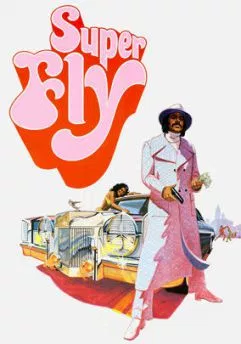By Andrea Wuerth, Reposted from May 18, 2017
When Donny “Hollywood” Riggsbee tells his story about growing up in Chapel Hill in the years leading up to and following segregation and the civil rights movement, his story takes some unexpected twists.
Like when he remembers his interactions with white college students. He recalls when he was a housekeeper in one of the student dormitories fondly, chuckling as he describes how they would drink beer together on Friday nights.
Or like when he describes his reaction to the assassination of Martin Luther King, Jr., and someone warns him that there’ll be riots in Chapel Hill:
“That ain’t nothing to do with us.” I said. He said, “There’s gonna be a riot, there’s gonna be a riot.” I said, “Oh, man, please, come on now. We ain’t about all that,” I said.
Or when he says that his most important mentor was Big John, the owner of Colonial Drug. The same Colonial Drug that in 1963 became the site for Chapel Hill’s most significant sit-in.
Unlike most of the other life histories of Northsiders, Hollywood’s is shaped by the conviction that it’s important to “get along” and, alternatively, to “let bygones be bygones.”
I think it would be a mistake to take this as a dismissal of remembering the years of segregation. His life is informed by lessons he internalized while living through an era shaped by violence and conflict.
By choosing to focus on a former segregationist as his mentor, he isn’t saying that the past doesn’t matter. He is saying that an avowed segregationist who consciously is moved to hire a black man is more complex than one might think. And it took a bold black man to ask the man, point blank, why he believed what he did. A question, rather than a statement or an action, opened a door.
As Hollywood tells it:
In Hollywood’s version of the story, the tone is never deferential. He walked the streets of Chapel Hill with an unassuming sense of self-respect that comes across as chutzpa in a segregated town governed by written and unwritten rules of “knowing one’s place.” Everyday actions normally reinforced the boundaries between black and white, separate and unequal, boundaries policed by each and every one in town, reinforced by the threat of violent consequences. He was a trespasser who often redefine the rules for himself. And there’s a Hollywood ending to this story that begins with a question, rather than a statement. Here it is, in his own words:
Why do you don’t like Blacks? He said, he was just tellin’ me, he said, it’s not [unclear] ‘cause he don’t like Blacks. He didn’t just want them tearin’ up his store. And then I said, “Well, how about me?” He said, “You seem like a very strong young man.” And he said, “Well,” he said, “I’m gonna give you–” he said, “Would you like to work for me?” I said, I said, “Yeah, I’ll work for you.” He said, “You get outta school this time every day?” I said, “Yep.” I said, “I walk this way.” He said, “You know how to use a mop?” “Yeah, I know how to use a mop.” He said, “Well, you got you a job, after school.” And then I come there after school, get out of school, ‘bout 3 o’clock we get out of school. The bus get uptown ‘bout 3:15 to 3:30, and then he, he let me, um, make this drink called “Orangeade.” And he showed me how to make that. And he showed me how to do coffee. Then he showed me how to, you know, make, make sandwiches and stuff like that.
So, you know, I help him and, um, he give me about 25 dollars, you know, a week. ‘Cause I told him, I said, um, I told him, “I don’t, I don’ t want my money every day.” He said, he said, “I can give you 25 dollars a week.””You help me,” he says, he says, “I pay you.” He says, “I pay you pretty good.”
And that’s when I broke the black barrier. Then everybody start comin’.
Big John’s brand of racism distinguishes between Blacks who cause trouble, bad (violent) Blacks and “good” Blacks, who don’t.
To me, this rings like, “You aren’t like those other folks,” but in Hollywood’s telling, Big John is just judging people by their actions rather than their skin color… alone. Hollywood reads this as a conscious decision to open the door.
It seems as though, by revising his perspective in this way, Hollywood and Big John have found a place to begin a relationship, the nature of which is determined by both of them. To Hollywood, that’s what matters and he boldly grabbed the opportunity.
So, what can we learn from Hollywood about the nature of segregation? Is there more than one way to tell the story?
There are as many ways as there are people who lived it. Each story can tell us something about what it took to live through a time in which people made sense of an unjust reality in different ways. Just because one lives through difficult times doesn’t mean that one’s life necessarily has to be defined by the greater historical narrative.
The biggest take-away for me is realizing that the narrative centers on a sense of agency, something segregationists felt black people should not possess. The way he tells it, Hollywood believed he had been privy to a white man’s transformation:
He said, ‘I used to be a bad person.’ He said, ‘Now,’ he said, ‘I’m a good person.’ He really opened up my eyes. And let me see the world. ‘Cause, you, I mean, we said, I would talk and, you know, he said, ‘I did some bad things.’ And he said, ‘I,’ he said, ‘I want, you know, the people to forgive me.’ But if a, it’s a forgive and forgot. You gotta go on forward.
By placing himself in a position to understand and interpret Big John’s actions, he reaches the conclusion that Big John had somehow fundamentally changed. Hollywood has taken on proudly the title of first black man to break the color barrier in this segregated establishment. He is the author of his story and writes his own version of history.
Once Big John made the first step, Hollywood then chose to give him a chance to build a bridge. Hollywood tells the story in a way that dignified both him and Big John. His narrative rests on mutual respect. Hollywood’s self-respect is a radical thing in the face of someone who had been refusing to let any black person enter his store. Hollywood just simply rejected that and set the terms for their relationship.
Hollywood has chosen to focus his life narrative around the moments when he forged connections, when he found a way to realize his ambitions. And so he reaches the conclusion that he has lived “a good life, a happy life.”
But there’s another thing. Hollywood says — unapologetically– why he took the job at Big John’s, aka, Colonial Drug. As he put it: “I was into, like, makin’ a buck, makin’ a dollar.” And he sensed that most people would not hold this against him:
Interviewer: So, wh-, how did people, like, did you ever know how people viewed you for working there?
Hollywood: No, everybody, I mean, like I told ‘em, you know, and, I told ‘em, I said, “Well,” I said, “I’m working here.” I said, after school, I said, I tell ‘em, like, “Look. I got to work somewhere, ‘cause you know what, I’m tryin’ to, um, not depend on my parents to help me, to bail me out of my tr-. I mean, you know, I, I like good shoes and I like to have me, you know, my own money.
He openly asserts his right to live a good life, to pursue happiness. And happiness meant he had to earn the money to pay for a little fun. For a black person living in Chapel Hill, the options were very limited and required stringing together the jobs you could get. Very few establishments were black-owned, and so he had to work for white people, and disregard their prejudice, more or less, resisting whenever possible.
His peace-loving, jovial, practical, scrappy nature was his most valuable asset. And if he worked it, he could get himself the $12 suit and the $5 hat that made life really worth living, that gave him his unique identity.
He’d wanted to be a movie star when he was a kid. But he earned his nickname for bringing a bit of “Hollywood” to Chapel Hill:
Hollywood: [laughs] Yeah, yeah. Dancin’ in talent shows and all that. Man, that’s– I used to be a catbird, boy.
Interviewer: What is a catbird? How do you define that?
Hollywood: How do you …
Interviewer: What does that mean to you?
Hollywood: Is like, you dressed up and you,
“Yeah, man,” in your Super Fly suit. We go to, we go to Roses. We buy a Super Fly suit for 12 dollars. [laughs] Go to Roses and buy us a Super Fly suit for 12 dollars, man. That’s about, uh, big, baggy pants, man, and um, Super Fly collars. And man, you know, we used to go to, um, over in Durham, man. Go to this store, this store. I forgot the name of that store. Man, you go there and get them old big collar shirts. Man, the collars over there. … And man, them old brims over there for–

Interviewer: [laughs]
Hollywood: For 5 dollars. [laughs]
Interviewer: I’m learnin’ more and more why you’re still called “Hollywood.”
And I, for one, am really glad that by sharing his story, he has brought back memories of flashier times. Hooray for Hollywood!
But there is one more thing. Hollywood began telling his story when the Jackson Center director, Hudson Vaughan, ran into him at the St. Joseph’s CME food bank. Hollywood was volunteering, giving back to the community he calls “home.” He babysits (though not always voluntarily, he says), he distributes food contributed to Northsiders by local restaurants (though he also likes to get some for himself, he says), he sings in the church choir (though he refused to sing in the interview). And yet, he adamantly resists efforts to make him a hero of any sort. He is self-deprecating and has nothing to hide.
Hollywood is most proud of just being healthy enough to keep on living, living in the house he originally bought, together with his siblings, for his mother. And though he’s lived elsewhere and lived through countless efforts to put him in his place here in his hometown, he says,”Man, you can walk free. You can walk free in Chapel Hill…”
Now that’s a Hollywood ending.
Andrea Wuerth is a volunteer participant in the Center’s Learning Across Generations local history curriculum and our Oral History Archive. She agreed to let us post her blog entry after archiving Hollywood’s oral history interview. Access to Andrea’s full blog can be found here.

Leave a Reply